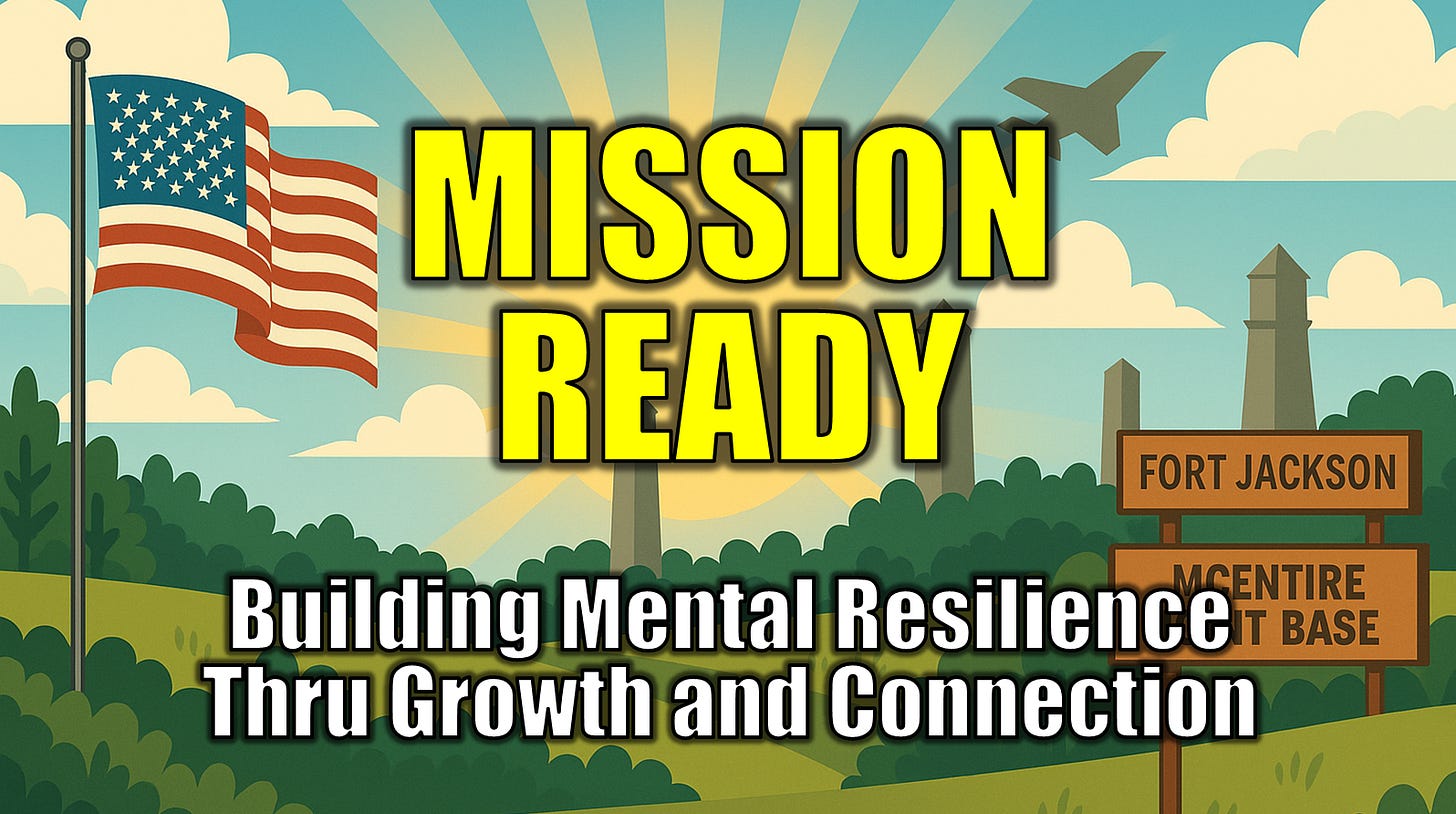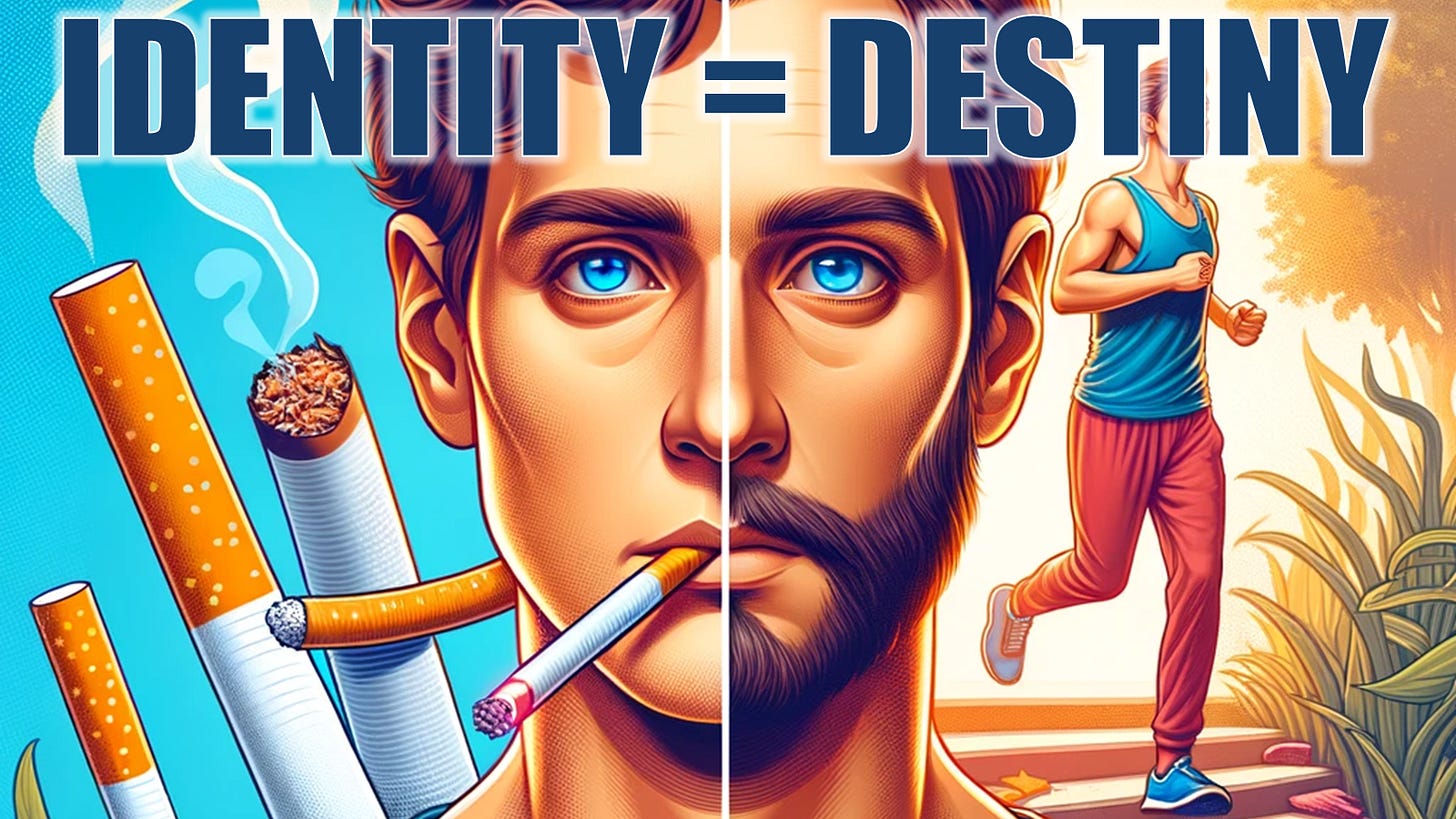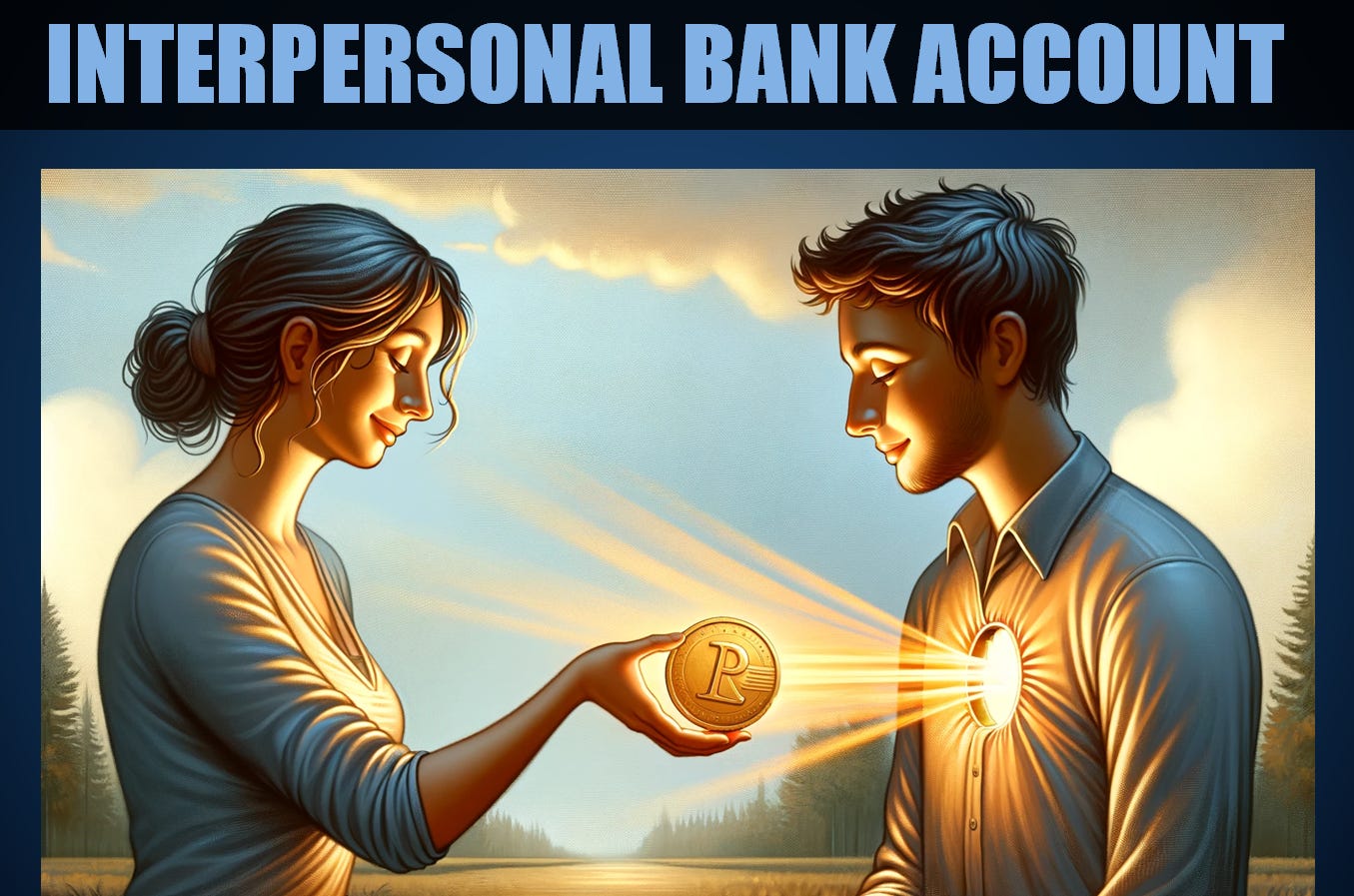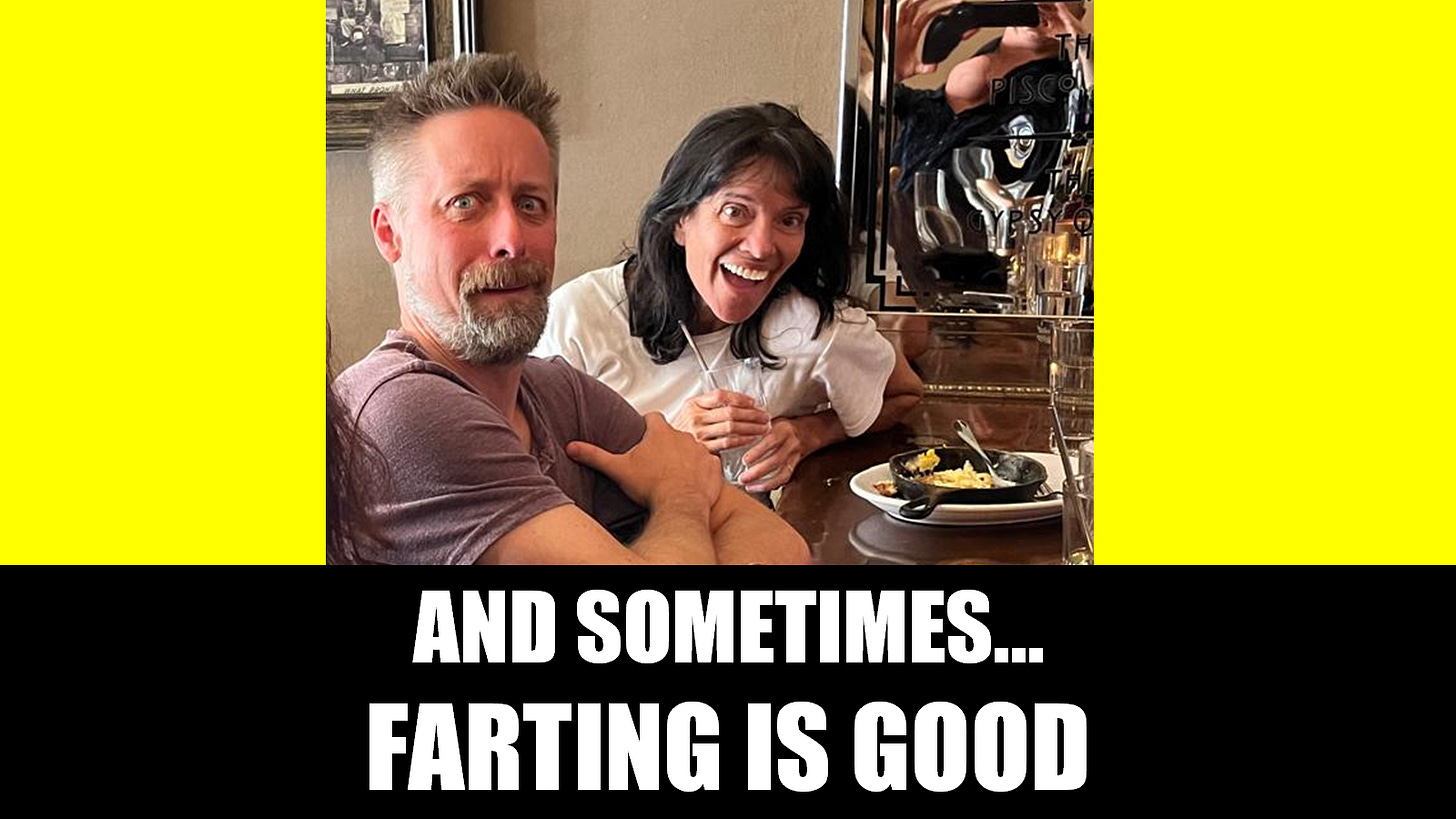Mission Ready: Five Keys to Building Mental Resilience Through Growth and Connection
What I learned about mental health from my grandma, a McDonald's drive-through, and why sometimes farting is good news
I recently spoke to several rooms full of Air National Guard and Air Force members about mental health. Standing there at the end of their four-day training cycle, looking at tired faces that had been hammered with information for days, I knew I had my work cut out for me.
But that's exactly why this conversation matters. Mental health isn't just for people who are struggling—it's performance maintenance for everyone who wants to show up as their best self.
—> Don’t miss the 5-step action plan at the end! ←
The Comfort Zone Trap
Let me start with my first memory as a human. I lived next to this old German lady named Hilda who would give me cheese crackers and 7-Up whenever I visited—basically paradise for a two-year-old. But on my birthday, when my mom said it was bath time, I rebelled:
"I'm like, I don't wanna take a bath. I don't know if you realize this, but I'm two years old. I don't wanna take a bath, right? But she's like, well, we got you these presents. So she goes to run the bath, and I'm sitting there, I'm like, you know what? I don't want a bath. I opened the door, but not the screen door."
Hilda called my mom: "Brian's over here and he's naked."
The lesson that stuck with me for decades:
"Sometimes we have to do things we don't want to do. We think we know it just until that point where we have to do that thing we don't want to do... And what we forget is that to get where we want to go sometimes, whether it's a fulfilling life or a better career or the next step in our career, we have to go out of our comfort zone."
The comfort zone makes sense—it saves energy, keeps us safe. But growth lives in discomfort.
Identity Is Destiny
When I was 18 and started college, I fell in with people who smoked. So naturally, I started smoking too. For two years, I was "a smoker." That identity shaped everything—where I hung out, what I did with my hands, how I dealt with stress.
When I finally decided to quit, I read something that changed everything: smoking is "a covert form of suicide." But the real breakthrough came when I stopped thinking of myself as "a smoker trying to quit" or even "a non-smoker":
"I'll just think of myself as a healthy person. I'm committed to healthy life, being the best person I can be, then that becomes my identity and then I act that way. But it takes time. I had to tell myself this over and over and over in my head to change it."
Here's the thing: who we think we are becomes our destiny. If you think you're weak, you'll act weak. If you think you're resilient, you'll find ways to bounce back.
The Five Keys to Mental Health
After years of working on my own mental health issues—I'm massively ADHD and grew up with social anxiety—I've identified five essential areas:
1. Adaptation Through Discomfort
Things change constantly. Technology, relationships, career demands. Even pain changes:
"When you're young and you wake up in pain, you're like, what'd I do yesterday? But when you're old and you wake up in pain, you're like, I didn't do anything yesterday."
There's a guy named David Goggins who writes about how doing difficult stuff is a muscle—a mental muscle. Your brain has an ability to learn and adapt. The more you practice going outside your comfort zone, the easier it becomes.
2. Personalized Performance Maintenance
We all have different weaknesses that need attention:
"If you're a perfectionist, you might need to work on big picture thinking. If you overcommit to stuff, you gotta prioritize your time. If you're a people pleaser, boundaries are important. If you're too pessimistic, optimism is good. I mean, there's research, optimistic people have better lives, right?"
I'm not naturally an optimist, but I worked on it. It kind of makes sense to believe things will go well—and they're more likely to when you believe that.
3. Connection and Likability
Here's something that surprised me. Research asked employees why they stay at their companies:
"74% of people said, I trust the people. I trust the leadership. 86% said I like the people. We know trust is foundational, but it's kind of a little surprising that maybe being likable and liking people might be even more important."
Harvard Business Review studied 51,000 corporate leaders and found that only one in 2,000 disliked leaders were effective.
I learned this lesson at a McDonald's drive-through. The woman taking my order stopped and said:
"You have the most beautiful blue eyes. And I was like, yes I do. Thank you very much. That made me feel good about me, about her, about that McDonald's. About McDonald's everywhere, right?"
When's the last time you complimented someone? Not just "nice shirt" but something that shows you see them as a person?
4. Stress Management That Actually Works
Here's the reality:
"75 to 90% of diseases are created by or worsened by stress. Stress creates inflammation in your head. Inflammation is one of the biggest culprits of diabetes, and also in some cancers. And people with PTSD specifically are at higher risk for high blood pressure, obesity, and heart disease."
I use a firefighting analogy. Firefighters break windows in burning buildings because:
"The ash will go up there and accumulate, and ash itself is ignitable and it'll explode, right? If you don't vent it... So I gave them this analogy, like, the stuff that happens to you in life gathers up there like ash and if you don't vent it, you'll explode."
Learn your check engine lights—those early warning signs you're overwhelmed. For me, it's headaches. Then find healthy ways to vent. Writing, talking to trusted people, even recording voice memos and listening back for perspective.
5. Purpose and the Interpersonal Bank Account
A few years ago, I went through a midlife crisis. Things were going well, but I felt like I was taking more from the world than giving back. So I became a Big Brother mentor.
Here's what I learned about relationships:
"Every time we are with someone, we are either giving or taking. And that's not just, you know, I gave you something, it's, it can also be, I am here for you emotionally. Right? Or I'm being the needy person, I'm taking."
Purpose isn't always grand gestures. Sometimes it's just showing up consistently for something bigger than yourself.
The Power of Emotion Over Logic
If there's one thing I want you to remember, it's this:
"Emotion can be more powerful than the brain. Emotion can be more powerful than logic... Like, have you ever been in an argument with your significant other? And you're right, you've never been more right. You've got facts, charts, research, graphs. You're right. But they're upset. Right? Logic cannot outsmart emotion."
That's why identity work is so powerful. When you change how you feel about yourself, you change how you act.
Sometimes the Weird Thing Works
Let me end with a story. My wife and I were on a cruise when she got violently ill—a hole in her colon caused a life-threatening infection. After emergency surgery, we spent eight days waiting for her colon to "wake up." The doctors' treatments weren't working:
"It's been eight days. We're sitting there in chairs, just staring at each other, depressed. And I realize I'm staring at my wife and I'm like, wait a minute, you know what coffee does? Why don't we get some coffee?... So she drinks some coffee. 15 minutes later she's in the bathroom and she goes, I farted. I'm like, you farted. My wife farted. Yes. I'm calling my friends, going, my wife farted."
It meant the nerves had regrown. She was going to be okay.
"Sometimes the best results come from weird approaches. Sometimes that weird thing is what works. Also, sometimes farting is good news."
Building mental resilience isn't about following a perfect formula. It's about developing multiple approaches, staying curious about what might work, and being willing to try new things when conventional wisdom isn't enough.
Your mental health is performance maintenance for your life. The better you are, the more you can show up for everyone else who depends on you.
Your 5-Step Action Plan for Building Mental Resilience
Step 1: Identify Your Personal Weakness Pattern Take an honest look at yourself this week. Are you a perfectionist who gets stuck in details? A people-pleaser who can't say no? Someone who isolates when stressed? Write down your specific pattern and choose one concrete behavior to work on. If you're a perfectionist, practice making "good enough" decisions. If you're a people-pleaser, practice saying no to one small request.
Step 2: Learn Your Check Engine Lights For the next seven days, track what happens right before you feel overwhelmed or stressed. Do you get headaches? Start eating junk food? Feel road rage? Get insomnia? Write these warning signs down. Once you know your early warning system, you can catch stress before it explodes into bigger problems.
Step 3: Practice the Interpersonal Bank Account Give one genuine, personal compliment to someone different each day this week. Not "nice shirt" but something that shows you see them as a human being—"I really appreciate how patient you were with that difficult customer" or "You have a gift for making people feel welcome." Notice how it affects both of you.
Step 4: Build Your Venting System Choose one method for processing stress that works for you: talking to a trusted friend, writing in a journal, or recording voice memos on your phone. The key is to get perspective, not just vent emotions. If you choose recording, listen back the next day to gain insight into patterns or solutions you couldn't see in the moment.
Step 5: Try One Weird Thing Think of something you've wanted to do but keep making excuses about—learning a skill, having a difficult conversation, changing a habit, or taking a small risk. This week, do it. Remember: adaptation is a muscle, and the only way to get stronger is to practice being uncomfortable. Sometimes the weird approach is exactly what works.
Your mental health isn't a destination—it's ongoing performance maintenance. Start with these five steps, but remember that building resilience is about developing multiple approaches and staying curious about what might work for your specific situation.
Brian Carter is a comedian, bestselling author, and speaker who has worked with over 150,000 students from organizations including NBC, Microsoft, and the U.S. Army. Despite being outstanding in his field (which is actually his grandmother's field), he continues to work on his own mental health journey.one story at a time.






You succinctly put forth
Life’s Lessons
Nicer Blueprint to
Lean on
Thanks for keeping it real